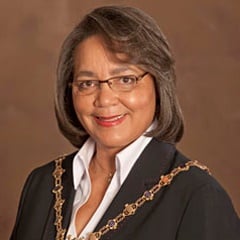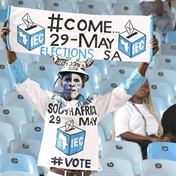
We must give no time to the views of those who cannot see beyond their own prejudices, writes Patricia de Lille
Over the past few weeks, we have seen a focus on issues related to an intractable global problem that has a distinctive manifestation in South Africa: racism.
This distinction is due to the legacy of our past and the institutionalised form that racism took, bureaucratising discrimination and affecting the lived reality of generations.
The lived reality of this racialised past lives with us today and is a substantive factor in the kind of opportunities people have access to in South Africa. Indeed, we did not do enough as a nation to fight the legacy of racism after 1994.
The role of public policy interventions is to address this substantive legacy through redress that tries to promote a meaningful reconciliation. This means dedicating resources to address the myriad inequities that are the result of generational discrimination that reached its zenith in apartheid practices.
These public policy interventions involve a measure of a social compact. It means using our resources to cross-subsidise the poor. It means dedicating attention and focus to areas that were underserviced and underresourced. And it means ensuring that we promote the idea of redress in all that we do.
For example, in the City of Cape Town, it means investing in massive public works programmes to address poverty, and investing in services for informal settlements and back yard communities.
This public policy approach is not easy. It is a moral imperative that promotes substantive social justice in our country, and it relies on an agreement from our diverse society that the present is a legacy of our past that needs meaningful interventions to change South Africa into a place where individuals need not be trapped by the circumstances of their birth. To be sure, it is a complex undertaking.
At the same time, we need to address the attitudes and mind-set of people who may not appreciate that social change requires a change in culture and behaviours. This type of project, which is more abstract but no less vital, requires public awareness and communication.
Last year, on Human Rights Day, I launched the city of Cape Town’s Inclusive City campaign under the banner of “Don’t let racists speak for you”. Its objective was to condemn racism publicly and promote a culture of rights awareness.
The essence of the campaign was to educate people that racism was a broad and repellent organism that manifests itself in different ways, and to encourage people to not casually accept the expression of racist opinions. Expressions of racism keep us corralled in a divided past. If we are to build a unified society, we can have no time for the discriminatory views of those who cannot see beyond their own prejudices.
But a core component of this campaign was a positive element of educating people about their rights. Our constitutional order, and the rights it bestows, was in essence a response to a racist order where rights were absent. The mission of our campaign was to let people know what they were entitled to as South Africans using the foundation of human dignity. Too often, we do not call upon the rights that so many of us fought so hard for, and it was our mission to create a real culture of human rights in Cape Town.
I also created an avenue in my office that could assist people who felt they were the victims of racism by working with partner bodies and institutions. We are seeing part of the virtue of public awareness in some of the incidents of the past few weeks, where action has been taken against those who cause offence. I am pleased to say that the second part of our campaign, which involves our councillors working in our communities to promote these messages and engage with their constituents, will be introduced in the next few weeks.
But as the debate about racism in South Africa continues, perhaps we should all be wary of responses that do not take into account the mechanisms available to us through the Constitution, chapter 9 institutions, equality courts and legal protections.
These mechanisms – these rights – are real and available to all South Africans. We should promote them and learn how to activate them more often while working towards a changed culture that embraces reconciliation in a country where people claim their rights for themselves and others.
De Lille is mayor of Cape Town




 Publications
Publications
 Partners
Partners








